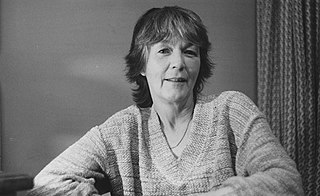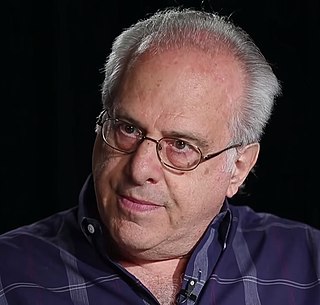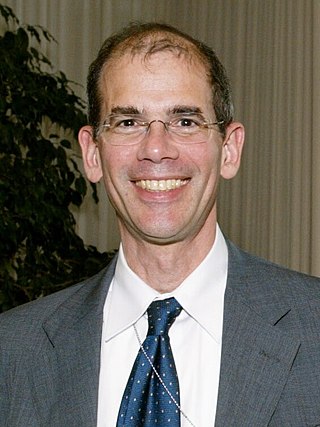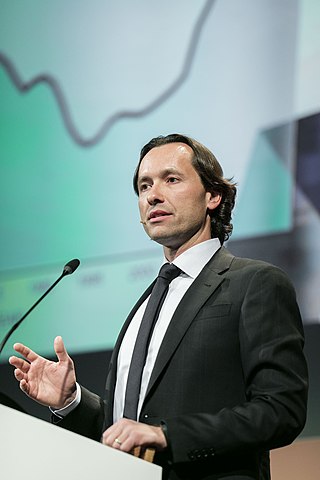Related Research Articles

Karl Ernst Haushofer was a German general, professor, geographer, and diplomat. Haushofer's concept of Geopolitik influenced the ideological development of Adolf Hitler. Rudolf Hess was also a student of Haushofer, and during Hess and Hitler's incarceration by the Weimar Republic after the Beer Hall Putsch, Haushofer visited Landsberg Prison to teach and mentor both Hess and Hitler. Haushofer also coined the political use of the term Lebensraum, which Hitler also used to justify both crimes against peace and genocide. At the same time, however, Gen. Haushofer's half-Jewish wife and their children were categorized as Mischlinge under the Nuremberg Laws. Their son, Albrecht Haushofer, was issued a German Blood Certificate through the influence of Rudolf Hess, but was arrested in 1944 over his involvement with the July 20th plot to assassinate Adolf Hitler and overthrow the Nazi Party. During the last days of the war, Albrecht Haushofer was summarily executed by the SS for his role in the German Resistance.

Jean Sybil La Fontaine FRAI is a British anthropologist and emeritus professor of the London School of Economics. She has done research in Africa and the UK, on topics including ritual, gender, child abuse, witchcraft and satanism. In 1994 she wrote a government report: The Extent and Nature of Organised and Ritual Abuse.

Harold Tafler Shapiro is an economist and university administrator. He is currently a professor of economics and public affairs at the Princeton School of Public and International Affairs at Princeton University. Shapiro served as the president of University of Michigan from 1980 to 1988 and as the president of Princeton University from 1988 to 2001.

John Quiggin is an Australian economist, a professor at the University of Queensland. He was formerly an Australian Research Council Laureate Fellow and Federation Fellow and a member of the board of the Climate Change Authority of the Australian Government.
Hugo Freund Sonnenschein was an American economist and educational administrator. He served as president of the University of Chicago from 1993 to 2000.

Michael Robert Kremer is an American development economist currently serving as University Professor in Economics at the University of Chicago and Director of the Development Innovation Lab at the Becker Friedman Institute for Research in Economics. Kremer formerly served as the Gates Professor of Developing Societies at Harvard University, a role he held from 2003 to 2020. In 2019, Kremer was jointly awarded the Nobel Memorial Prize in Economic Sciences, together with Esther Duflo and Abhijit Banerjee, "for their experimental approach to alleviating global poverty."

Richard David Wolff is an American Marxian economist known for his work on economic methodology and class analysis. He is a professor emeritus of economics at the University of Massachusetts Amherst and a visiting professor in the graduate program in international affairs of the New School. Wolff has also taught economics at Yale University, City University of New York, University of Utah, University of Paris I (Sorbonne), and The Brecht Forum in New York City.

Harvey Sheldon Rosen is an American economist and academic. Prior to his retirement and subsequent appointment as Emeritus Professor in 2019, Rosen was the John L. Weinberg Professor of Economics and Business Policy at Princeton University, and former chairperson of the Council of Economic Advisers. His research focuses on public finance. Harvard University economist and former Council of Economic Advisers chairman Greg Mankiw credits Rosen as one of four mentors who taught him how to practice economics, along with Alan Blinder, Larry Summers, and Stanley Fischer.

Nobuhiro Kiyotaki FBA is a Japanese economist and the Harold H. Helms '20 Professor of Economics and Banking at Princeton University. He is especially known for proposing several models that provide deeper microeconomic foundations for macroeconomics, some of which play a prominent role in New Keynesian macroeconomics.

Abhijit Vinayak Banerjee is an Indian-born American economist who is currently the Ford Foundation International Professor of Economics at the Massachusetts Institute of Technology. He is co-founder and co-director of the Abdul Latif Jameel Poverty Action Lab (J-PAL), an MIT based global research center promoting the use of scientific evidence to inform poverty alleviation strategies. In 2019, Banerjee shared the Nobel Memorial Prize in Economic Sciences with Esther Duflo and Michael Kremer, "for their experimental approach to alleviating global poverty." He and Esther Duflo are married, and became the sixth married couple to jointly win a Nobel or Nobel Memorial Prize.
Marc J. Melitz is an American economist. He is currently a professor of economics at Harvard University.
Stephen Edward Morris is an economic theorist and game theorist especially known for his research in the field of global games. Since July 2019, he has been a professor of economics at the Massachusetts Institute of Technology. Prior to that he taught at Princeton, Yale, and the University of Pennsylvania. He was the editor of Econometrica for the period 2007–2011, and in 2019 served as president of the Econometric Society.

Edward "Ted" Andrew Miguel is an American development economist currently serving as the Distinguished Professor of Economics and Oxfam Professor of Environmental and Resource Economics at the University of California, Berkeley. He is the founder and faculty co-director of the Center for Effective Global Action (CEGA), a Berkeley-based hub for research on development economics.
GiveDirectly is a nonprofit organization operating in low income areas that helps families living in extreme poverty by making unconditional cash transfers to them via mobile phone. GiveDirectly transfers funds to people in Bahamas, Bangladesh, DRC, Liberia, Kenya, Malawi, Morocco, Mozambique, Nigeria, Rwanda, Togo, Turkey, Uganda, USA, and Yemen.
B. Douglas Bernheim is an American professor of Economics, currently the Edward Ames Edmunds Professor of Economics at Stanford University; his previous academic appointments have included an endowed chair in Economics and Business Policy at Princeton University and an endowed chair in Insurance and Risk Management at Northwestern University’s J.L. Kellogg Graduate School of Management, Department of Finance. He has published many articles in academic journals, and has received a number of awards recognizing his contributions to the field of economics. He is a partner with Bates White, LLC an economic consulting firm with offices in Washington, D.C., and San Diego, California.
Mikhail Golosov is a Belarusian-American economist currently the Homer J. Livingston Professor of Economics at the University of Chicago and a Fellow of the Econometric Society. He previously served as Chemical Bank Chairman's Professor of Economics at Princeton University.
Douglas A. Irwin is the John French Professor of Economics in the Economics Department at Dartmouth College and the author of seven books. He is an expert on both past and present U.S. trade policy, especially policy during the Great Depression. He is frequently sought by media outlets such as The Economist and Wall Street Journal to provide comment and his opinion on current events. He also writes op-eds and articles about trade for mainstream media outlets like The Wall Street Journal, The New York Times, and Financial Times. He is also a nonresident senior fellow at the Peterson Institute for International Economics.
Rudolf Winter-Ebmer is an Austrian economist and professor of labor economics at Johannes Kepler University Linz, where he is also chair of the department of economics. He is also a senior fellow at the Institute for Advanced Studies in Vienna, Austria. Since 2011, he has also been associate editor of the Institute's official journal, Empirical Economics. He has been heading a Christian-Doppler Laboratory of "Ageing, Health and the Labor Market" at the Johannes-Kepler-University of Linz 2014-2021. He is a member of the German Academy of Sciences (Leopoldina) and a former President of the European Society for Population Economics. 2021-22, he was President of the Austrian Economic Association (NOEG).
Kevin F. Hallock is an American economist and academic administrator serving as president of the University of Richmond since 2021. Before coming to Richmond, he was the Dean of the SC Johnson College of Business at Cornell University from 2018 to 2021.
References
- ↑ Matthews, Dylan. "A charity dropped a massive stimulus package on rural Kenya — and transformed the economy". Vox . Retrieved 8 July 2021.
- ↑ "CV of failures professor Johannes Haushofer on what success really means". The Independent . Retrieved 8 July 2021.
- ↑ "Why it feels so good to read this Princeton professor's CV of failures". Washington Post.